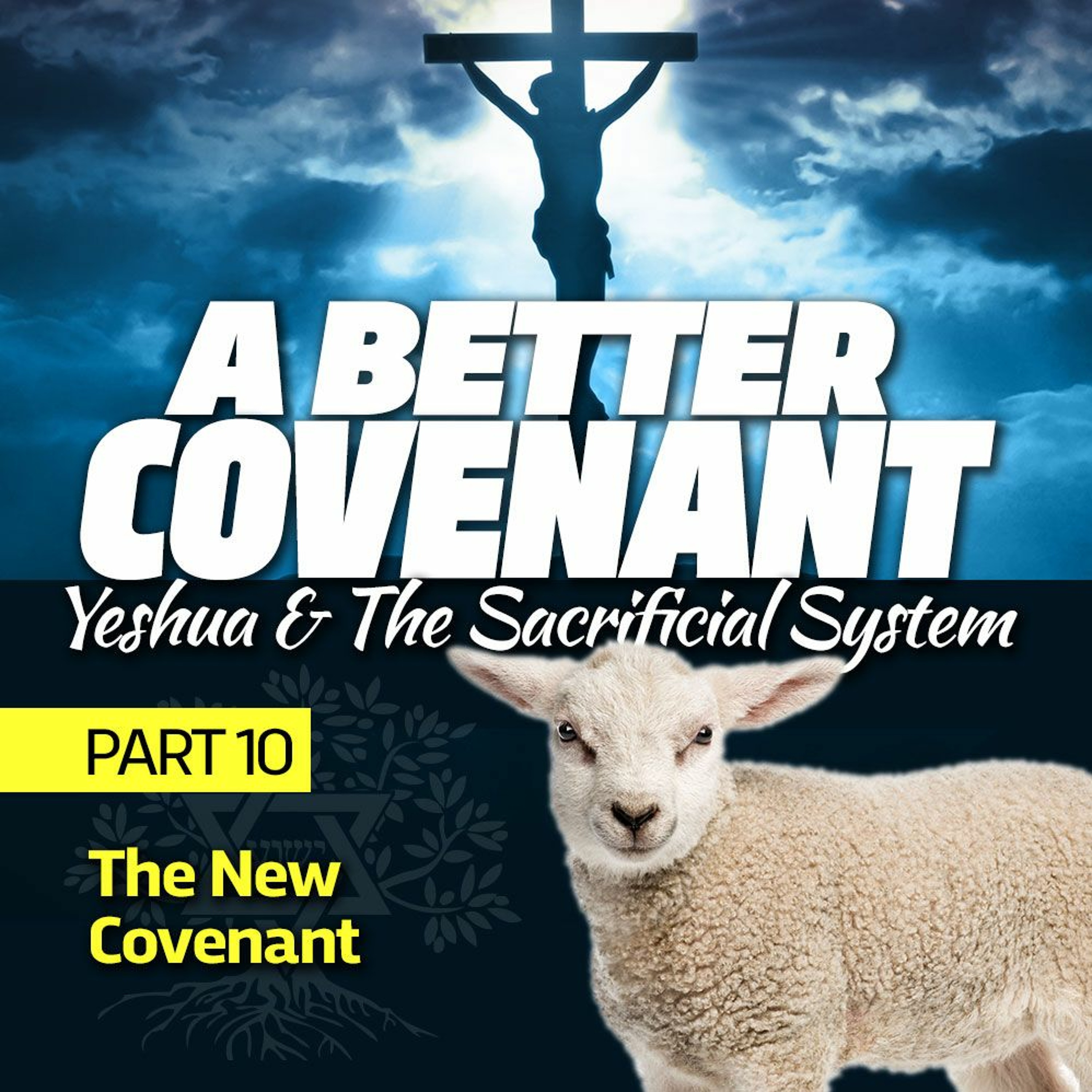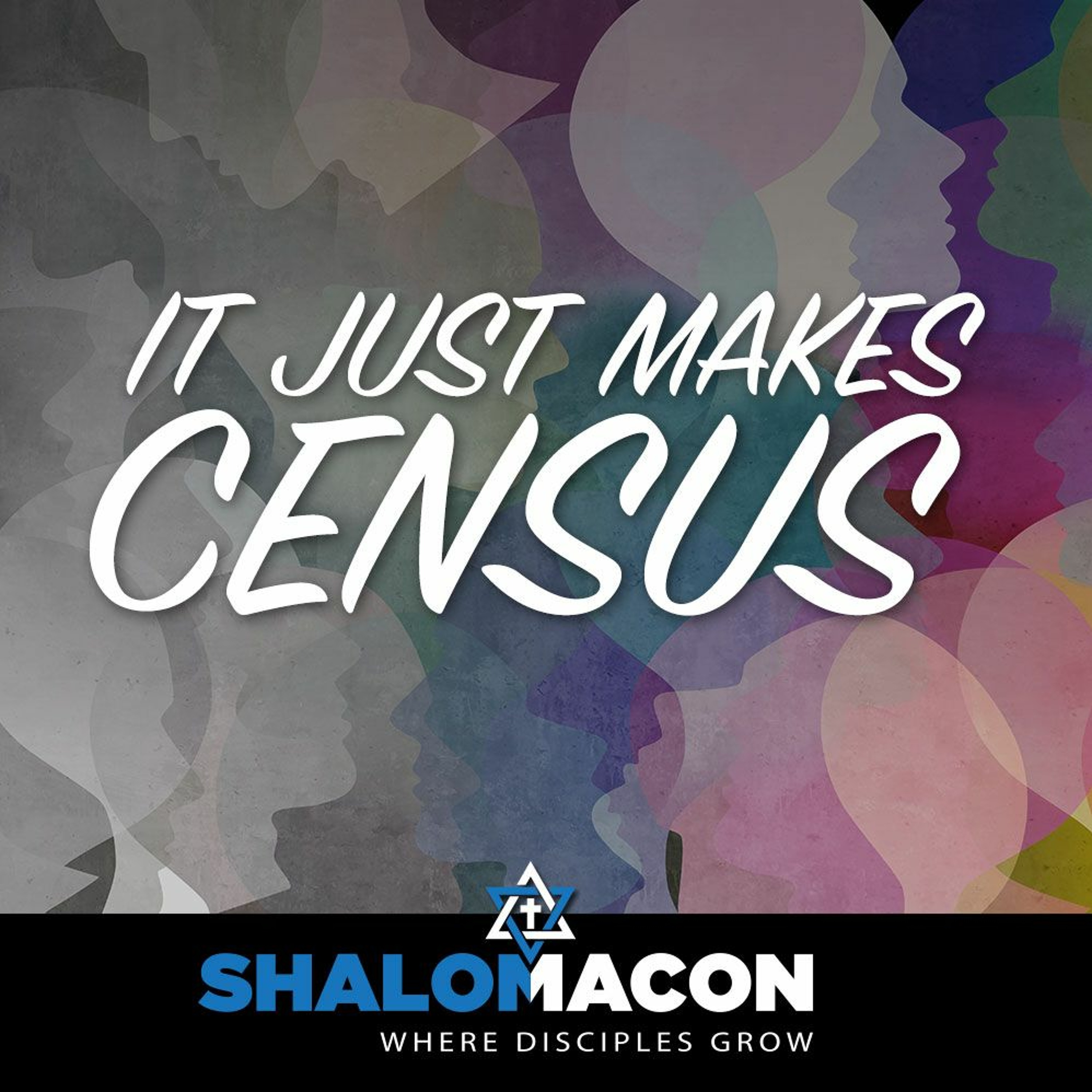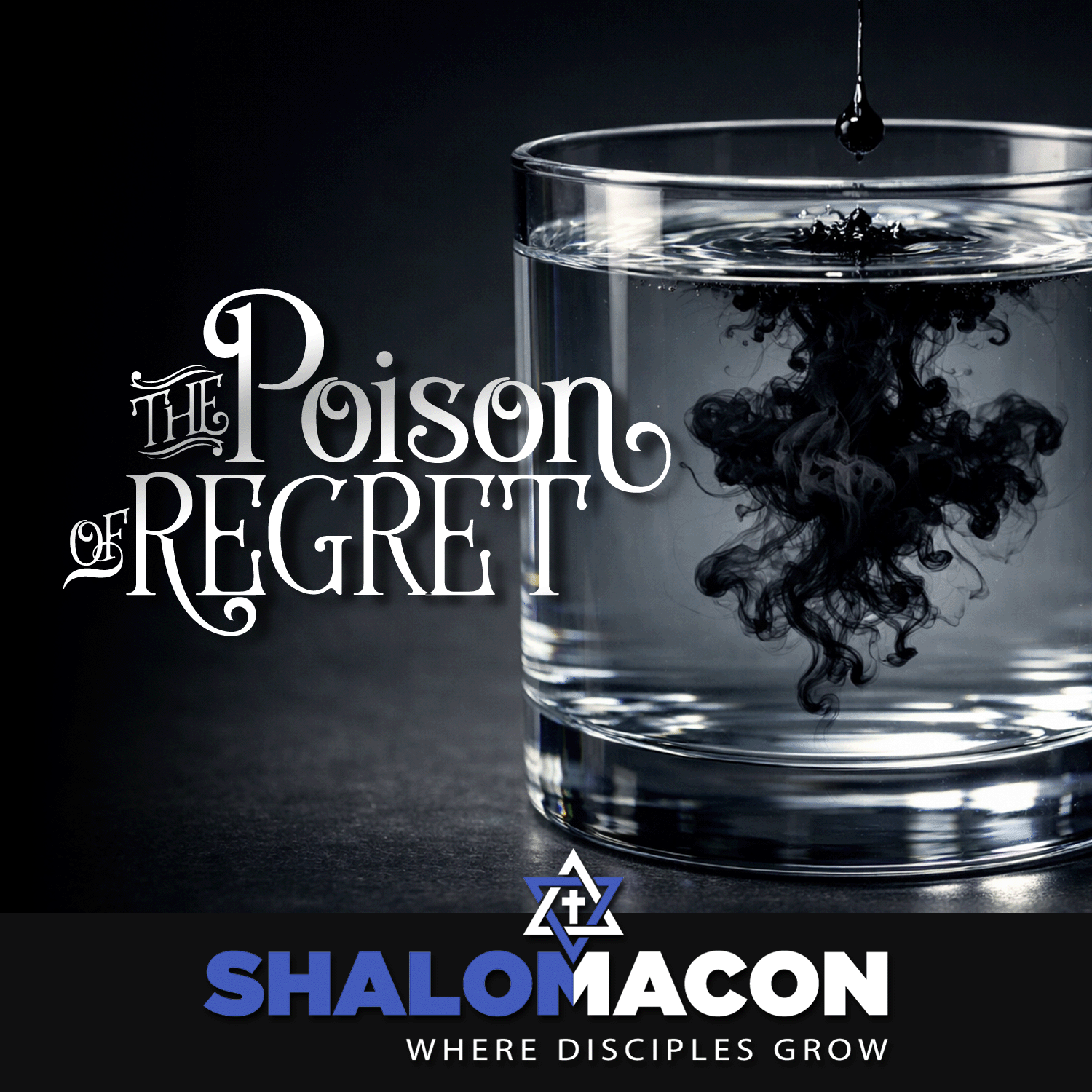[00:00:00] Speaker A: When you think of power, what comes to mind? Muscles? Automatic weapons? Nuclear reactors? A supernova? But what about the power to transform another person's entire life? And I know, and I'm not talking about witchcraft, what if you could simply speak a word that would alter the course of a person's life forever? How would you wield that power? If you want to know the true power of how you can change someone else's life with merely the spoken word, then stick around for this week's five minute Torah.
Welcome back, Shalomis. Welcome to another episode of the five minute Torah. Before we get into the actual five minutes or so of the five minute Torah, here's a brief overview of this week's Torah reading. This week, we're studying the Torah portion of Nassau. Numbers 421 through 789. Yes, you heard me right. 89. And here are the three things that you need to know about it. Number one, the test of the sota creating shalom bite. The Torah portion of Nassau describes the test of the soda, a ritual for determining the guilt or innocence of a woman suspected of adultery that could only be performed when the tabernacle or temple was in service. If a husband suspects his wife of infidelity and there are no witnesses, he could bring her to the priest along with a grain offering. The priest would then prepare a mixture of holy water and dust from the tabernacle floor and write a curse on a scroll, which is then washed off into the water. The woman then drank the bitter water after swearing an oath of innocence. If she is guilty, the water would cause a physical reaction leading to her punishment. If she is innocent, however, she would remain unharmed and not only that, she would be able to conceive children. Number two, the nazirite vow extreme commitment the nazirite vow was a special commitment taken by individuals who dedicated themselves to God for a specific period of time. Those who took the nazirite vow must abstain from wine, grapes and any grape products, avoid cutting their hair, and stay away from corpses to maintain ritual purity. These restrictions coincide with the individuals heightened state of holiness and separation for the lords service. At the end of the vow period, the Nazarite underwent a purification ritual that includes offering sacrifices, shaving their head, and burning the hair on the altar in the temple or tabernacle. Since nazirite vows are tied to the temple, they are not encouraged today as there is no way to end the vow once it is complete. Number three, restitution. Making right the wrong in this weeks Torah portion, the laws concerning restitution for wrongdoing emphasize justice and accountability within the community. When an individual commits an offense against another, they must confess their sin and make full restitution to the wronged party. This involves repaying the principal amount of what was taken or damaged, plus an additional fifth of its value as a penalty. If the wrong party has no close relative to receive the restitution, it is given to the priest along with a ram for atonement. These laws show the importance of taking responsibility for one's actions, making amends, and restoring relationships within the community. If you're looking for a place to learn, connect and grow, then Shalom Macon is the place. It doesn't matter where you are in the world. You can find a connection with Shalom Macon through our live services every Saturday and through our private social network we call Shalom at home. Check us out on YouTube and on our
[email protected], for more information. We look forward to connecting with you and seeing you this Shabbat this week's Torah commentary is called the power of blessing and comes from my book five minute Torah, volume two. In this week's parsha, we continue learning about the responsibility of the levitical tribes to transport the tabernacle and its components. In the previous portion, we learned about the responsibilities of the Kohatai family, and in our current portion we learned about the responsibilities of the tribes of Gershon and Morae. After this, we learn about the test for the sotah, which we mentioned earlier. The sota is the wayward wife, and then we learn about the laws of the Nazirite. Our portion concludes by recounting the various offerings brought by the tribal heads for the dedication of the tabernacle. The topic we are going to explore, however, is six verses wedged in between the laws of the Nazirite and the dedication. Offerings number 622 27 records for us what is commonly called the birkat hakonim, the priestly blessing or the aaronic benediction. The Lord spoke to Moses saying, speak to Aaron and his sons, saying, thus shall you bless the people of Israel. You shall say to them, the Lord bless you and keep you. The Lord make his face to shine upon you and be gracious to you. The Lord lift up his countenance upon you and give you peace. So shall they put my name upon the people of Israel, and I will bless them. The Lord instructed Aaron and his sons, the kohanim, the priests, to use this liturgical formulation to bless the children of Israel. Aaron would raise his hands upward with his palms toward the congregation and spread his fingers in a way that formed the hebrew letter sheen in order to represent the word shaddai, one of the names of God, which means almighty or all sufficient one. Every day across the world this blessing is bestowed upon the jewish people. When it's recited in the synagogue, the congregation turns their eyes away from the koan or the one reciting it in the absence of a kohen. This is to remind us that the blessing, particularly this blessing, does not come from the koan but directly from the Lord. The koan is simply the conduit through which this blessing is imparted. The blessing is also bestowed upon children around the Sabbath table every Friday night, parents of observant families place their hands on the heads of their children and after bestowing upon them either the blessing of Ephraim and Manasseh for the boys, or Sarah, Rebecca, Rachel, and Leah for the girls, speak this blessing over them. But how are we to understand the various components of this blessing and their practical meaning? Sifqai, a midrashic commentary in the book of Numbers, offers several insights into this beloved blessing. First, what does it mean that the Lord should bless you and keep you well? Rashi says, it means that God will both give and guard. In other words, God will provide goodness and blessing, but he will also guard what he has given. Sifre takes this further by saying, God will provide all of the various blessings spelled out in deuteronomy 28 three, six and also preserve you for the final redemption. What does it mean for the Lord to make his face to shine upon you? According to Rabbi Nathan, citing psalm 67 two it means that the light of the shechinah, the divine presence of God, will be upon you and visible to others. What does it mean that the Lord be great to you? It means that he would grant your requests as well as give you divine insight. What does it mean that the Lord would lift up his countenance upon you? It means that he will favor you. What does it mean that the Lord would give you peace? It means that he will give you peace with all men and give you peace in both this world and the world to come. What a wonderful blessing, especially to impart to our children. Just before Yeshua ascended to heaven, he imparted a blessing to his disciples. From the description in Luke's gospel, he appears to have blessed his disciples with this priestly blessing, it says, and he led them out as far as Bethany, and lifting up his hands, he blessed them while he blessed him, he parted from them and was carried up into heaven, and they worshiped him and returned to Jerusalem with great joy and were continually in the temple blessing. Luke 24 50 53 maybe Yeshua imparted some of these same insights described above to his disciples as he lifted his hands and blessed them that day. Maybe he offered new and surprising insights into this blessing to his disciples. Whatever the case, he believed in the power of blessing and raised his hands to impart blessings to his disciples on the occasion of his departure. Although the company of disciples who were physically present with him that day are long departed, each generation of Yeshua's disciples can place themselves in that moment to receive that blessing and pass it on to our children and those whom we disciple. May we carry forth that blessing and pass it down to our children, our grandchildren, and our spiritual children and grandchildren until the time of our master's return, in order that his light would shine forth. In this world, there is power in blessing. May we wield that power for its intended purpose and not miss our opportunity. Do you believe in the power of blessing? I would love to hear how you've experienced it in your own life. Just drop me a note in the comments below. Well, that's all for this week. I'll see you next week with another messianic insight into the eternal Torah of God. Blessings from Shalom Macon, the place where disciples of Yeshua learn, connect, and grow.
[00:09:19] Speaker B: Please visit our website, shalommakin.org, to learn more about us. Join our live services, access other teachings, sign up for our newsletter, join our private network that will connect you with our greater community from around the world, or contribute to the work of Shalom Macon. Thank you for watching, and we look forward to connecting with.



